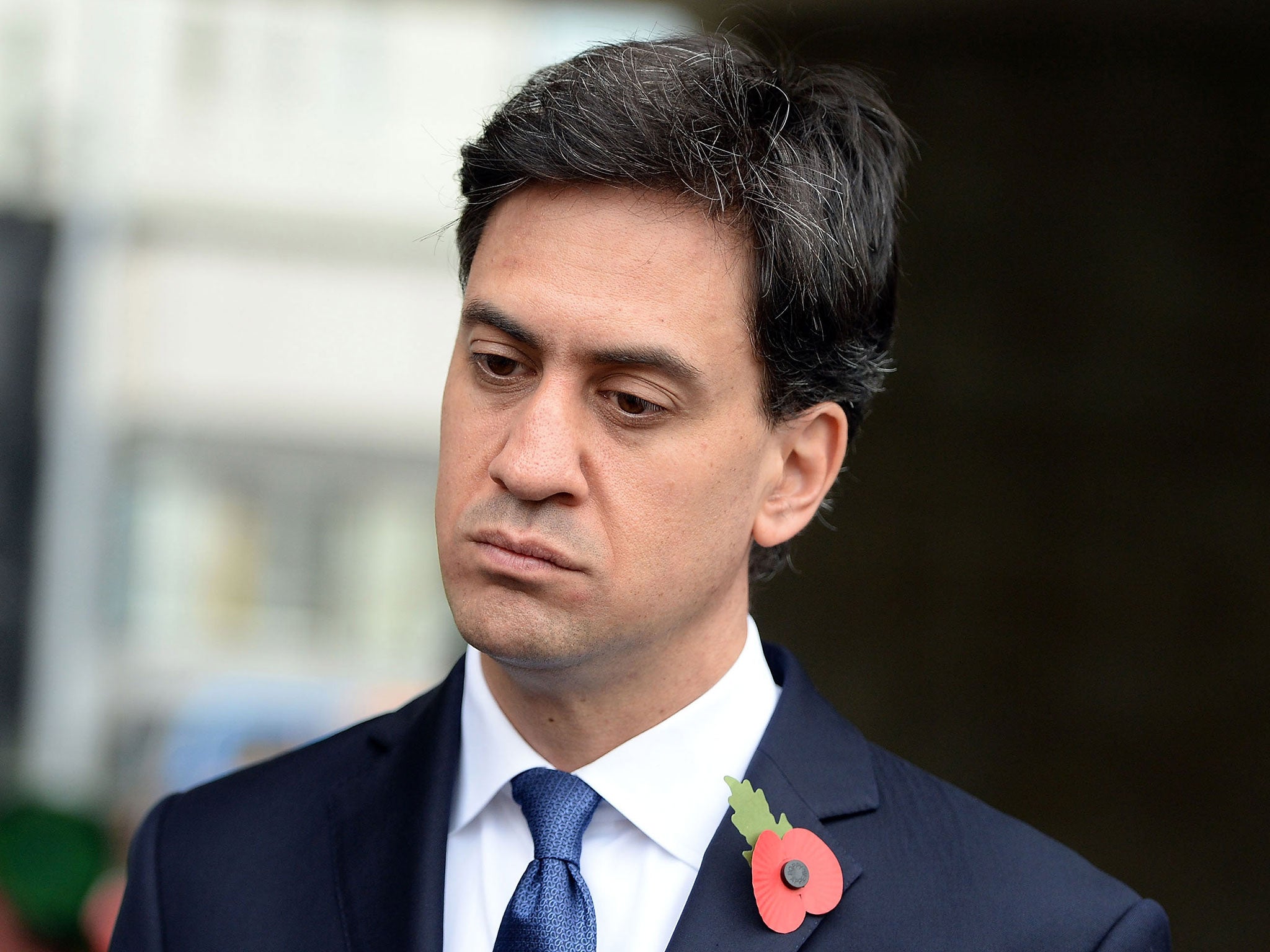Miliband's demise is a subplot. The multi-party revolution is the big story
Inside Westminster


“It’s worse than just fearing we will lose the election,” one Labour MP sighed yesterday. “A lot of us are also worried we will win.
If we limp across the finishing line because Ukip eats into the Tory vote, it would be a disaster. We would be a weak government with no mandate.”
Fearing victory could only happen in the Labour Party. This week it talked itself into a leadership crisis. Ed Miliband’s allies insist there is “no plot” to ditch him. But the latest wobble is real, and the biggest yet. There is remarkably little confidence in him among the Parliamentary Labour Party (PLP), or even in a Shadow Cabinet of his own choosing. He may survive this storm, but only because there is no agreement on who should succeed him.
In the run-up to the 2010 election, Labour agonised over ousting Gordon Brown, then Prime Minister. There were plenty of plots but no one willing to wield the first knife. “We are doing it all over again with Ed,” one Labour insider said. “The Shadow Cabinet is waiting for the PLP to jump first and the PLP is waiting for the Shadow Cabinet.”
Mr Miliband is a victim of the turbulence created by the new anti-politics mood. He could be out of his job within weeks. Equally, he could be installed as prime minister exactly six months from today. “The pieces on the chessboard have been thrown up in the air,” one Miliband loyalist admitted. “No one has a clue where they will land.”
Next May will be the most unpredictable election I have covered in 30 years of reporting national politics. A new multi-party politics must be shoe-horned into a first-past-the-post voting system that worked 50 years ago when nine out of 10 people voted either Conservative or Labour. May will be a battle between six parties, not two. Although often written out of the script, the Liberal Democrats will not give up their 57 seats without a fight. Ukip is snapping at the heels of the Conservatives and, increasingly, at Labour’s. At the same time, Labour’s core vote is being nibbled away by the revitalised Greens and the Scottish National Party (SNP). Labour assumed its 41 Scottish seats would provide a solid bedrock. But many natural Labour voters backed independence in the referendum and have switched to the SNP.
So the building blocks of Labour’s election strategy are crumbling. The party assumed that Ukip was mainly a “Tory problem” that would help Labour win marginal seats by taking votes away from the Tories. It banked on retaining the Lib Dem 2010 voters who switched to Labour soon after Nick Clegg entered the Coalition. But in the past two years, the Lib Dems have lost more to the Greens, Ukip and the Tories combined than to Labour. And there has been no switching from the Tories to Labour, very worrying for a main opposition party.
Traditional party loyalties are weakened. Voters want to shop around and there are new products on the shelves. There is no deference towards politicians after the MPs’ expenses scandal; “the Westminster parties” suffer.
The collapse of the two-party duopoly has been predicted before and failed to materialise. In the 1980s, the Social Democratic Party nearly broke the mould, but instead forced Labour to change. This feels different.
True, both the Tories and Labour will make similar appeals to the people who have drifted away from them. They will urge the disaffected to vote with “their head, not their heart.” This week I spoke to a Cameron ally who said: “People know that choosing a government is not a free hit in a by-election with no consequences. We will get some people back from Ukip by warning them they would put Ed Miliband in Downing Street. But we have no idea how many.” On the same day, a senior Labour figure told me: “Our message to people flirting with the Greens is that if they get 6 per cent of the vote, it will ensure a Tory government.” Labour will issue the same warning in Scotland. It is praying the hatred of the Tories north of the border will woo some defectors back from the SNP.
Miliband aides point out that the breakdown of the two-party system is not a British phenomenon. Populists and insurgents, mainly on the right but sometimes on the left, prosper in the age of austerity that followed the global financial crisis. Miliband allies insist the Tories’ response to this huge challenge is to panic, pander to Ukip and put Britain’s economy at risk by flirting with EU withdrawal. They contrast that with the “clear, costed, credible programme” they insist Labour will offer.
The tragedy of Mr Miliband’s position is that he is a man with a plan to ease the pain of globalisation who wants radical economic reform. But he is hemmed in by indecision, caution and a desire to gain economic credibility, and ends up pleasing no one.
Mr Cameron and Mr Miliband do not have much in common. But they both need to portray next May as a “big choice” election and remind voters that only one of them can be prime minister afterwards. Their common problem is that many voters want a bigger choice than the two old parties and are looking elsewhere.

Join our commenting forum
Join thought-provoking conversations, follow other Independent readers and see their replies